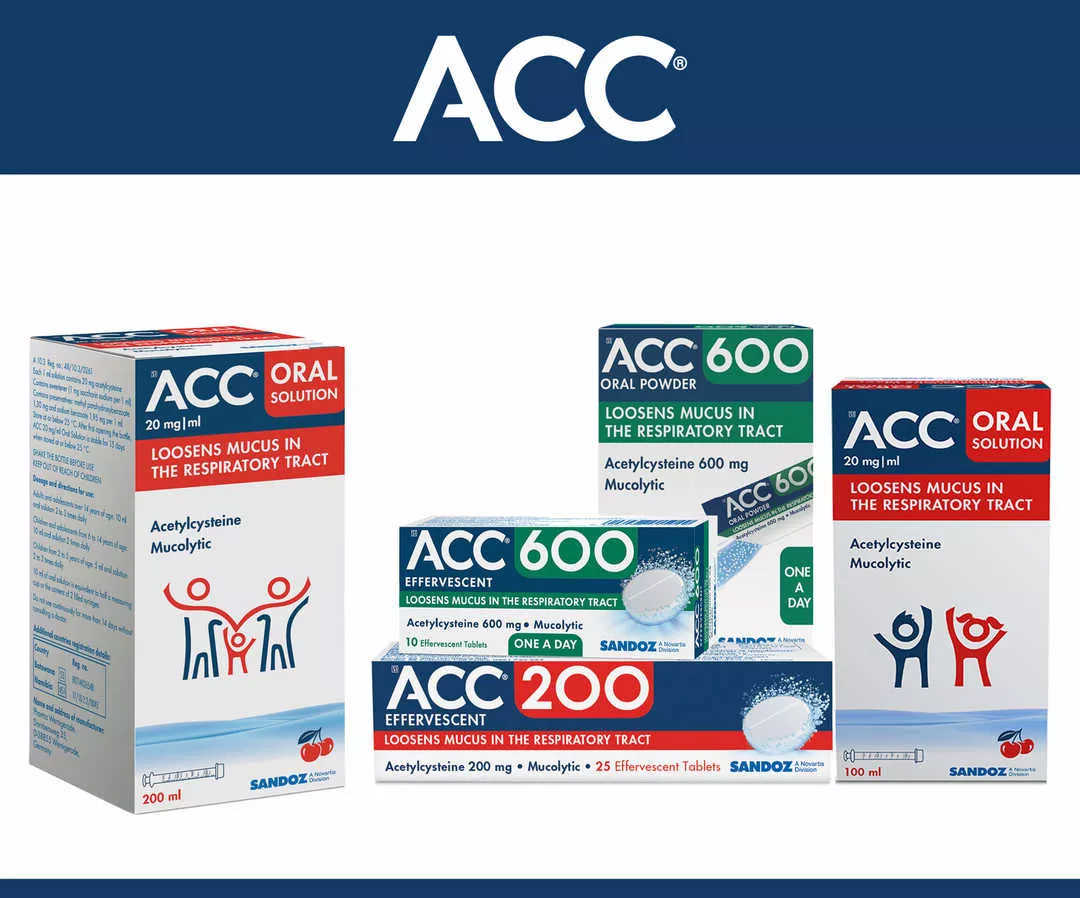ARE COUGHS CONTAGIOUS?
Can you catch a cough or spread it to somebody else? If the cough is a symptom of a viral or bacterial infection, then yes, coughing can spread the infection from one person to the next.1
Cold and flu viruses are usually spread from one person to another in tiny droplets that are produced when someone with the virus coughs, sneezes or talks.2 If you breathe in these droplets from an infected person, you can catch the virus.2
This means that some of the most common causes of a cough (like colds and flu) are contagious, and can easily be passed from person to person through coughing.1,2 That’s why it’s important to protect yourself and others against infection by following good health and hygiene habits.3
How to avoid spreading germs through coughing
|
To avoid catching or passing on a virus, follow common sense and good hygiene:
|

ACC® relieves mucus congestion in the airways1-3

| References |
|---|
|
| Sidebar References |
|---|
|
[S1] ACC® 20 mg/ml Oral Solution. Reg. No.: 48/10.3/0261. Composition: Each 1 ml of ACC 20 mg/ml ORAL SOLUTION contains 20 mg acetylcysteine. ATC Code: R05C B01.
[S1] ACC® 200 (effervescent tablets). Reg. No.: 29/10.2.2/0753. Composition: Each ACC 200 effervescent tablet contains: 200 mg acetylcysteine. Pharmacological Classification: A10.3 Medicines acting on the respiratory system – other.
[S1] ACC® 600 (effervescent tablets). Reg. No.: 45/10.3/0229. Composition: Each effervescent tablet contains 600 mg acetylcysteine. [S1] ACC® 600 ORAL POWDER. Reg. No.: 51/10.3/0816. Composition: Each sachet contains 600 mg of acetylcysteine. ATC Code: R05CB01.
For full prescribing information refer to the Sandoz Professional Information approved by the South African Health Products Regulatory Authority (SAHPRA).
Contact Us
Sandoz SA (Pty) Ltd, Reg. No. 1990/001979/07,
Magwa Crescent West,
Waterfall City,
Jukskei View,
Midrand,
2090.
Tel: +27 (11) 347 6600.
SANCAL Customer Call Centre: 0861 726 225.
Reporting of AEs:
https://pvi1j.solutions.iqvia.com or [email protected]